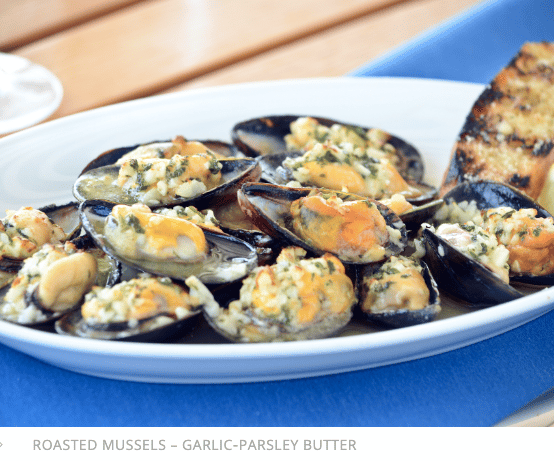WHY YOU SHOULD EAT MUSSELS
Mussels (especially farmed mussels) are one of the most sustainable proteins you can buy. That’s happy news for the planet, and mussels are a healthy choice for the body as well. Low in fat and high in protein, mussels are an excellent source of Vitamin B12, which keeps nerve and blood cells healthy. They deliver a good amount of iron, too, which is a key component of hemoglobin, the protein in red blood cells that moves oxygen throughout the body. And with Omega 3s, Vitamin C, and good fats to boot, mussels deserve a spot on your list of health superfoods.
SHOULD YOU FOLLOW THE “R” RULE FOR MUSSELS?
There’s an old rule of thumb that says you should only eat oysters, as well as clams and mussels, during months that have an R in the name. There were a few good reasons for this rule, including the lesser quality of bivalves during their summer spawning season, as well as an increased risk during warmer months of toxins that can cause seafood sickness. But thanks to advancements with aquaculture and refrigeration, we don’t strictly adhere to this rule anymore — although oysters and other bivalves like clams and mussels are, generally speaking, at their best in the colder months. You should also always be sure to buy your shellfish from a reputable source, store it properly, and use it quickly.
So, now that you know the rules, enjoy yourself some mussels at Breakwater Restaurant in Stonington, CT.






